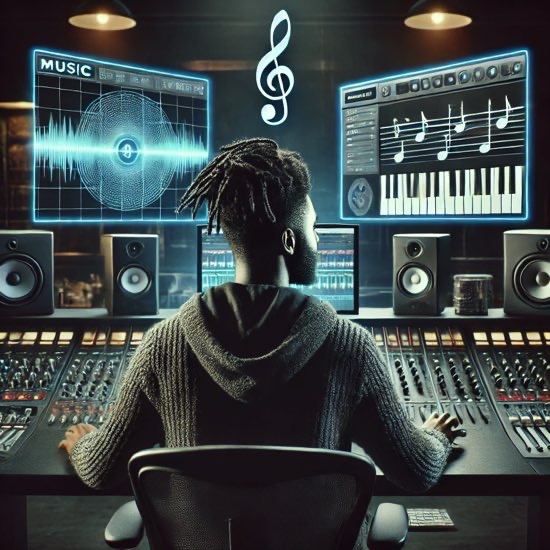How AI Revolutionizes Music Creation: A Glimpse Into the Future

TL;DR:
Generative AI is transforming the music industry by boosting creativity, efficiency, and collaboration. While it offers exciting opportunities, it also presents challenges related to authenticity, bias, and the future of music production. Integrating AI and human artistry promises a new era of musical innovation.
Introduction:
Imagine a world where your favorite tracks are not just the product of human genius but also the creative power of machines. With generative AI at the forefront, the music industry is transforming profoundly. AI is becoming an integral collaborator in music creation, from composing mesmerizing beats to mastering tracks with precision. In this article, we'll explore how this technology is reshaping the industry, the benefits it offers, the challenges it poses, and what the future holds for AI in music.
Benefits of Generative AI in Music
- Enhanced Creativity
AI is like an endless well of inspiration. By analyzing vast amounts of data, generative algorithms can identify patterns and create novel combinations that might never occur to a human composer. This opens up a world of new sounds and ideas, pushing the boundaries of what's musically possible.
- Increased Efficiency
Imagine having a tool that takes care of the repetitive tasks, like beat-making, so you can focus on your creative vision. AI-powered tools can automate many aspects of music production, allowing artists to spend more time on the artistic elements that require a human touch.
- Accessibility
You no longer need to be a seasoned musician to create high-quality music. AI-driven platforms are democratizing music production, making it accessible to anyone with a passion for creating music, regardless of their technical expertise.
- Improved Collaboration
The future of music is collaborative, not just between humans but also between humans and machines. AI can act as a co-creator, bringing unexpected and innovative ideas to the table, leading to unique musical outcomes that might not have been possible otherwise.
Challenges of AI in Music
- Authenticity and Ownership
As AI-generated music becomes more common, questions about who owns the music arise. Is it the artist who trained the AI, the programmer who wrote the code, or the AI itself? This challenge will require new legal frameworks to ensure human creativity is valued and protected.
- Homogenization of Sound
There's a risk that AI could make music sound too similar. If algorithms prioritize familiar patterns over innovation, we could have a musical landscape needing more diversity and originality.
- Bias and Diversity
AI is only as good as the data it's trained on. If that data lacks diversity, AI systems perpetuate existing biases, limiting representation and opportunities for underrepresented groups in the music industry.
- Technical Limitations
While AI can do a lot, it still struggles to replicate the emotional depth and nuance that comes naturally to human musicians. This limitation could make AI-generated music feel less authentic or emotionally resonant.
Future Trends in AI and Music
- Hybrid Human-AI Collaboration
The most exciting music of the future will likely come from a blend of human and AI creativity. Artists will use AI not just as a tool but also as a collaborator that helps push creative boundaries.
- AI-Assisted Music Production
Expect to see AI-powered tools become a staple in music studios. These tools will streamline workflows, allowing musicians to focus more on the artistic aspects of production.
- AI-Generated Music for Specific Applications
AI-generated music will become increasingly tailored for specific uses, like film scores, video game soundtracks, or therapy. This customization will make AI valuable in creating the perfect mood or atmosphere. Advancements in Audio Processing
AI will continue to advance in audio processing, making it possible to create even more sophisticated sounds. This can create new genres and styles we cannot even imagine today.
Conclusion:
Generative AI is not just a tool; it's a partner in the creative process. As it becomes more integrated into music production, it's essential to navigate its challenges, from authenticity and ownership issues to the potential for homogenization and bias. But with thoughtful development and a focus on diversity and human values, AI can enrich the music industry, opening up new avenues for creativity and collaboration. The future of music is a harmonious blend of human artistry and machine intelligence, promising a vibrant and diverse musical landscape.